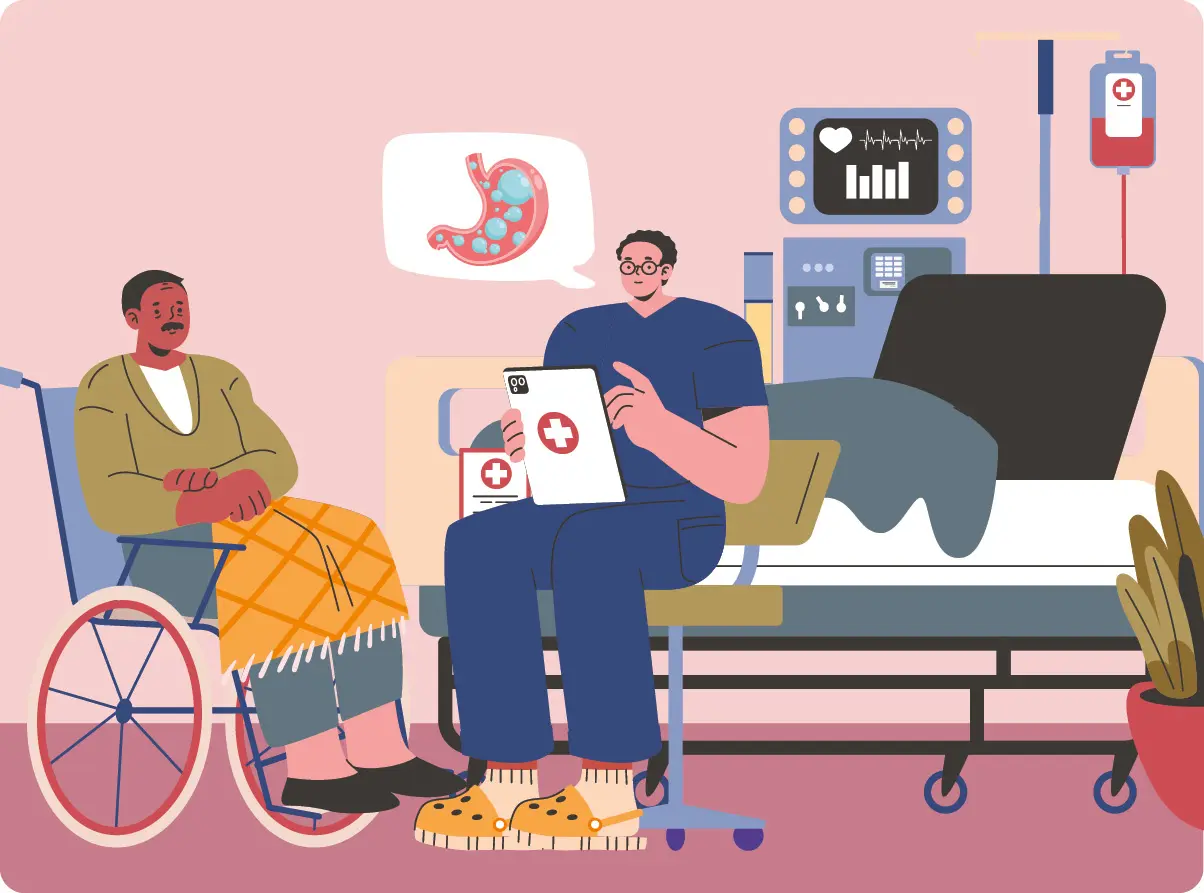News & Articles

From Cancer Diagnosis to Healing

Travelling from Bangladesh for treatment, Mr Mohammad Ali Khan found comfort in a medical team that made him feel at home.
THE CHATTY, SMILING MAN IN AN IMMACULATE WHITE PANJABI (a traditional Bangladeshi outfit) is unrecognisable from the silent and tense figure who arrived in Singapore seeking treatment for Stage 3 gastric cardia cancer.
That man — now a healthy and cheerful 51-year-old — was Mr Mohammad Ali Khan in November 2019. A businessman in Bangladesh’s garment industry, he first suspected something was wrong with his health when he lost his appetite and developed a recurring fever. “The first doctor I visited said it was nothing serious and gave me some medication for gastric discomfort,” he recalled. “But I still didn’t feel better, so after three or four months, I went to another doctor who recommended an endoscopy.”
The endoscopy and subsequent biopsy revealed a large cancerous tumour in his stomach extending into his oesophagus. Shaken and overwhelmed, Mr Ali turned to prayer and acts of charity, preparing himself for the worst.
His family was equally devastated. His five brothers and three sisters joined his mother, wife and children at their home to pray for him. It was during one of these gatherings that his eldest brother suggested seeking treatment in Singapore.
Encouraged, Mr Ali took the plunge and applied for a visa, which was approved within seven days. A month later, they were in Singapore to consult a surgeon, followed by an appointment with a medical oncologist the next day.
The Little Things that Mattered
The treatment plan consisted of eight chemotherapy cycles, in addition to surgery to remove the tumour. Both doctors made a positive impression on Mr Ali, a keen observer who appreciated the small but meaningful gestures that spoke to their dedication and holistic approach to care.
For example, at their first consultation, Mr Ali arrived with three family members, but the room had only two chairs. “My doctor didn’t say anything — he just asked me to sit down before going out to bring in chairs from the next room for my relatives to sit on,” he recalled. “In other places, a specialist doctor of his rank might press a button to call someone else to do something like that! He was very welcoming and down to earth.”
Gentle Care That Stayed With Him
Mr Ali added that he was deeply moved by the gentle care he received from the medical team. Nurses were careful when sponge-bathing him after surgery, and phlebotomists drew blood with such skill that he barely felt discomfort.
A translator recalled meeting Mr Ali for the first time. He was accompanied by his siblings, nieces and nephews, who had travelled with him. “The family were sitting in the clinic looking very sad, and he was so reserved that he did not say a single word the entire day,” she recounted. “But gradually, he grew easy with me as I accompanied them to every doctor’s appointment.” She listened when he needed to share his worries and helped lift his spirits. Over time, they grew so close to Mr Ali and his family that they still keep in contact today as friends.
“The kind gestures of everyone made me feel warm inside,” he said. “This is the way every hospital patient should be treated. Just from the care and kindness of the medical team, you already feel half-cured.”
Facing Challenges with Courage
During his first four chemotherapy cycles, Mr Ali commuted between Singapore and Bangladesh every 15 days before undergoing surgery in January 2020. After recuperating, he returned home but came back for two more rounds of chemotherapy.
However, travel restrictions due to COVID-19 meant he could not return for his final two cycles if he left Singapore. Unsure of how long restrictions would last, he decided to go home. His oncologist arranged for him to undergo the last two rounds of chemotherapy in Bangladesh and approved an equivalent chemotherapy regimen using locally available medications.
Throughout the pandemic, his oncologist continued to monitor his progress closely. Last year, while visiting Bangladesh, he met Mr Ali and his family.
“My son was very happy to chat about my treatment with my doctor, who reassured us that there would be hardly any chance of the cancer recurring once I crossed the five-year mark,” said Mr Ali.
Now cancer-free, he is thankful for the support he has received — from family and friends who prayed and cared for him to the medical team in Singapore who gave him hope.
“The way I was treated in Singapore, with such friendliness and genuine warmth — I remember every detail, like a movie replaying in front of me.”
Mr Mohammad Ali Khan, reflecting on his cancer care journey from Bangladesh to Singapore
| POSTED IN | Up Close and Personal |
| TAGS | stomach cancer |
| READ MORE ABOUT | Stomach Cancer |
| PUBLISHED | 01 July 2025 |
